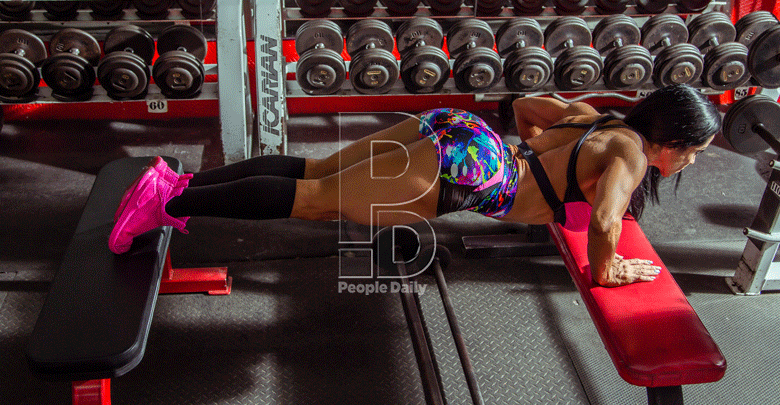Ten things you should stop doing before a workout

Pre-workout habits can either lead to terrible or amazing results. With the right routine, your body will be able to function at a higher level, taking you closer and closer to the goal you have been longing for. Here are the most common pre-workout mistakes and some solutions you can learn from.
1. Don’t start working out on an empty stomach
Some people use a cardio “fast,” which is done on an empty stomach. The theory is that your body will feed on the fat and carbs as energy, which can help with more weight loss.
However, if you haven’t eaten anything a few hours before working out, your body might start to use protein as fuel.
This means that you will have less protein for your muscles to repair and build.
Also, if you focus on using fat as your main energy source, it doesn’t mean that your body will burn more calories.
2. Don’t overeat
Eating too much food too close to a workout can cause stomach cramps/pain and nausea, neither of which are condusive to a training session.
In addition, when your stomach is overburdened with digesting a large quality of food, then more blood will be directed there than into the muscles, which will decrease the pump and effectiveness of every exercise.
3 Don’t drink too much water before working out
It’s important to be well hydrated before a workout, but avoid drinking too much water, because if you do, your blood will try to balance the salt levels.
Your cells might swell and you could experience symptoms such as dizziness, pain, and you might even vomit.
It’s best to drink not more than half a litre of water one to two hours before your training.
Fifteen minutes before you start, drink about 230-20mls of water. You might need to drink more if you sweat more or if the weather is warmer.
4 Don’t nap for too long
It’s okay to take a short nap before working out, as long as it’s for about 30 minutes. It’s considered a “power-nap” and can increase your focus and energy.
However, a longer nap can have just the opposite effect. It might leave you feeling more lethargic than you did before you got some sleep.
5 Don’t over or underdress
Even if you’re working out on the coldest day of the year, you shouldn’t put on too many layers.
You can overheat and you’ll sweat a lot. Then, if the cold wind hits you, the sweat will evaporate rapidly, chilling you.
Conversely, on the hotter days, opt for fabrics that will allow your skin to breathe.
Choose clothes that will be comfortable and cool and that will let you move freely. Also, choose cotton pants and shirts because they’ll be best at absorbing sweat.
6 Avoid static stretches
First of all, static stretches might reduce performance, having a negative effect on your running speed, reaction time, and force production.
Plus, if your body hasn’t been warmed up first, it can lead to muscle damage.
This doesn’t mean that you should totally forget about static stretches. Instead, do them after because it will pose more benefits.
7 Have proper rest
Rest days are important for the body to repair and recover. This is an important part of your workout schedule no matter your choice of sport or fitness level.
If you skip your rest days, it can cause burnout and overstrain. Allowing yourself to rest will give your muscles a chance to recover and grow, preventing fatigue.
You will sleep better, the risk of injury will be reduced, and your performance level will increase.
8. Don’t drink coffee
Caffeine is the most common ingredient in pre-workout supplements. It might help you by providing you with energy to help you work out more and can even boost motivation and focus, but not for long.
Digesting too much caffeine can lead to gathered contractions in your colon, which can increase the chances of having a bowel movement.
This means that you might find yourself sitting on the toilet during your workout.
But this is just part of the side effects as you might also experience restlessness, insomnia, rapid and/or abnormal heartbeat, anxiety, heartburn, and increased blood pressure.
9. Don’t drink alcoholic beverages
The negative effects are obvious — even just a small amount of alcohol is enough to reduce the amount of control you have over your body.
It also affects your coordination and concentration, which means that you won’t be able to do the exercises correctly or you may misjudge the intensity.
You’ll feel it the next day, when your body tells you that you’ve overdone it with sore or strained muscles and tendons.
10. Do not get stressed
When one is stressed, the body will release higher levels of stress hormone, cortisol, which breaks down muscle tissue and encourages body fat storage.
Additionally, being stressed will inhibit your ability to concentrate limiting muscle fibre activation and possibly causing injury due to lack of focus. So, try to avoid stressful situation before hitting the gym.












